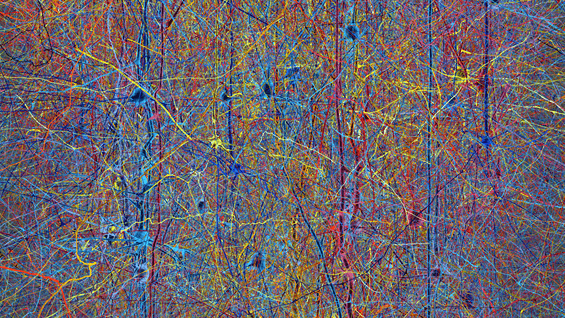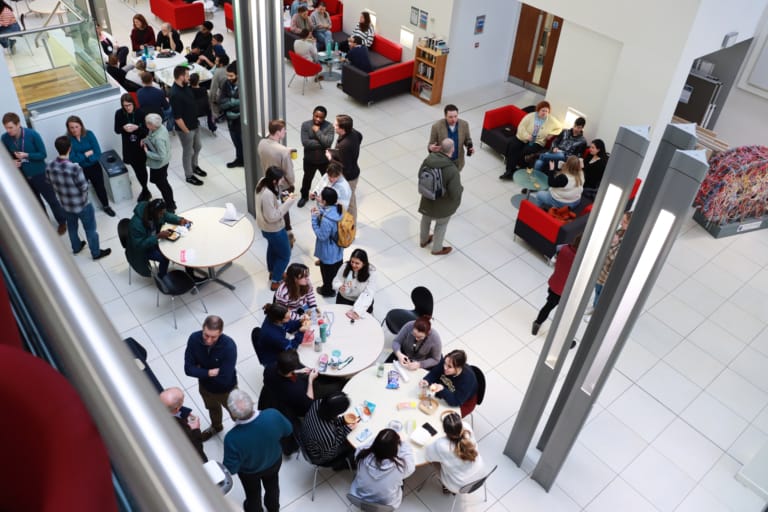
Lister Fellow James Lee and his colleagues at the Francis Crick Institute have published a new paper this week in Nature, revealing a new biological pathway that plays a major role in inflammatory bowel disease (IBD).
IBD is a complex, chronic condition that affects around 5% of people worldwide, and 10% in the UK. It’s an umbrella term that covers ulcerative colitis and Crohn’s disease, and its prevalence is on the rise. Although it affects so many, the causes of IBD aren’t well understood, and current treatments don’t help everyone with the condition.
James is Group Leader of the Genetic Mechanisms of Disease Laboratory at the Crick, and Consultant Gastroenterologist at the Royal Free Hospital and UCL. Working with UCL and Imperial College London, James and his team explored a ‘gene desert’ – an area of the genome that doesn’t code for proteins – which had previously shown links to IBD and other autoimmune conditions.
Inside it, they found a segment of DNA that acts as an ‘enhancer’ for the genes around it, amplifying their output of proteins. The enhancer works on macrophages, immune cells that are important in IBD, and boosts a gene called ETS2, which has been correlated with higher disease risk.
The team found that ETS2 is essential for many of the inflammatory functions of macrophages, including some that create the tissue damage found in IBD. Using genetic editing, they increased the amount of ETS2 genes in macrophage cells, turning them into inflammatory cells like those found in IBD patients.
If ETS2 drives IBD, reducing it with medication should help patients feel better. There isn’t a known medication that decreases it, so the team tried MEK inhibitors, drugs which are prescribed for other inflammatory conditions.
The drugs reduced inflammation in macrophages, and in samples of gut tissue from IBD patients, indicating exciting potential for a new treatment pathway. James and the team are now exploring ways of delivering the drugs directly to macrophage cells, since they can create side effects in other organs.
“IBD usually develops in young people and can cause severe symptoms that disrupt education, relationships, family life and employment. Better treatments are urgently needed,” James explains.
“Using genetics as a starting point, we’ve uncovered a pathway that appears to play a major role in IBD and other inflammatory diseases. Excitingly, we’ve shown that this can be targeted therapeutically, and we’re now working on how to ensure this approach is safe and effective for treating people in the future.”
Although ETS2 causes problems in humans today, it may have been a lifeline for our ancestors. Researchers at the Crick’s Ancient Genomics Laboratory found that the gene may have been handed down in our genes since the time of the Neanderthals, estimating it to be between 500,000 and 1 million years old. For these populations, it might have played an important role in fending off bacterial infections.



